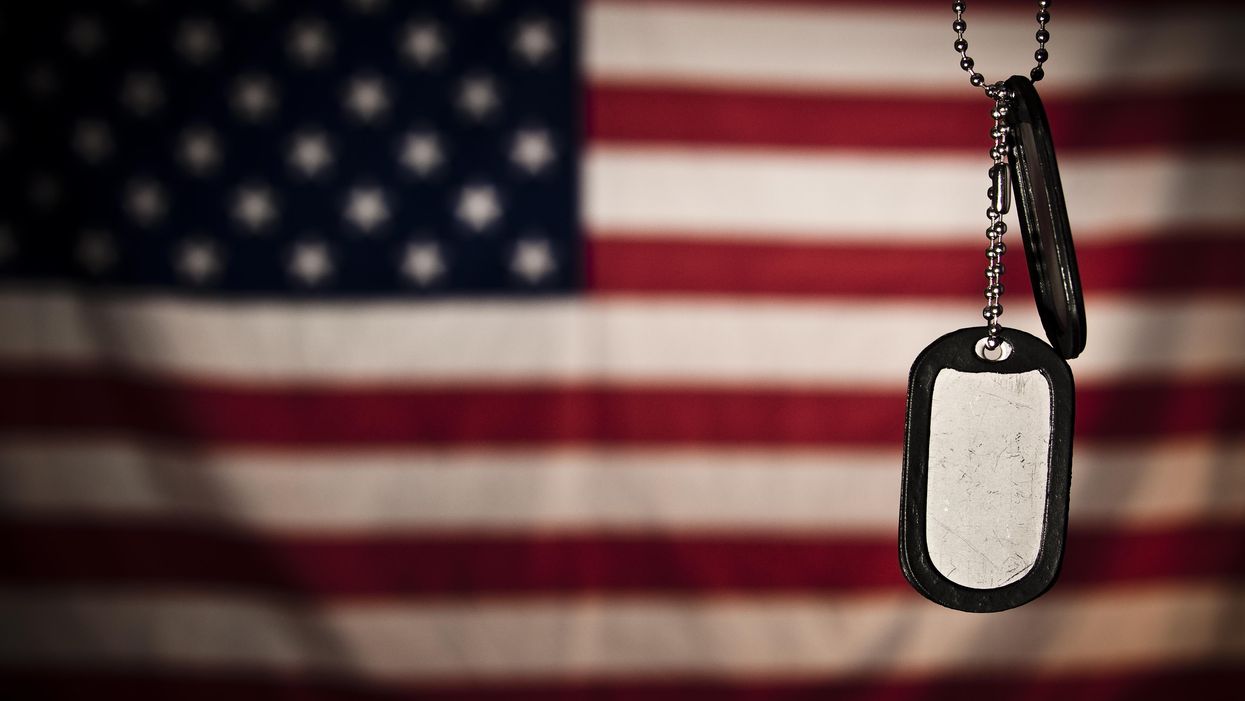Ever since the military draft was abolished in 1973, the U.S. armed forces have been populated by Americans who volunteer to serve their country. And for many, that civic engagement carries over when they become veterans.
The latest edition of the Veterans Civic Health Index, which measures the civic contributions of veterans, found that those who serve in the military outperform civilians in nearly every category, in some cases by significant margins.
"More than 18 million living Americans have served in the military. All who joined after 1974 – and some before – voluntarily chose to join the cause of defending the country from all enemies foreign and domestic," reads the report, produced by the National Conference on Citizenship, in partnership with The Mission Continues and Iraq & Afghanistan Veterans of America. "It is logical that a subpopulation with a demonstrated disposition for military service would also have a predilection toward the behaviors that indicate civic health."
This fourth edition of the Veterans CHI breaks out data on post-9/11 veterans, which it classifies as those under 50 years old, for the first time.
The report found that 74.7 percent of all veterans voted in the 2020 presidential election, outpacing the non-veterans (66.9 percent). That's an increase of nearly 5 points for veterans from 2016. Nearly 80 percent of all veterans were registered to vote in 2020, while non-veterans were under 73 percent.
Those gaps carry over when the data is broken down by age group: 75 percent of younger veterans were registered to vote and 65.8 cast ballots in 2020. Among non-veterans under 50, those numbers were 69.1 percent and 61.7 percent, respectively.
"Many veterans have a vested interest in the political process. The debate to send service members to war, the oversight of national security, and the budget decisions that impact pay for military members come down to elected leaders in the federal government. The immediate and direct connection to the military for decision makers in Washington can make a real difference. When those direct connections do not exist, the voter participation of veterans, service members, and military families becomes even more important," the report states.
The index also compares volunteerism among veterans. While the differences between veterans and non-veterans are not statistically significant in this category, there has been growth from the first edition of the report, in 2015. That report found 26 percent of all veterans provided volunteer work in their communities in 2013; by 2019 (the most recent data available), that number was up to 30.1 percent. There was no difference among older veterans and non-veterans in 2019, but in the under-50 cohort, veterans slightly outperformed their counterparts (31.8 percent to 30.2 percent).
Researchers did note a difference in the number of hours volunteered, writing: "Though they are less likely to volunteer, the older veterans who do volunteer are able to log more hours than younger veterans, averaging 100 hours per year compared to 78. In all categories, veterans log more hours than non-veterans."
The researchers also measured the social connectivity of veteran and non-veterans, examining factors like helping or spending time with neighbors. While the veterans were 10 percent more likely than non-veterans to demonstrate "neighborliness," the gap didn't carry over through all age groups.
"Young veterans are slightly less likely (17.9 percent) to do something positive for the neighborhood than are young non-veterans (18.6 percent). This is a surprising finding, given young veterans' propensity for service," the report states. "It may speak to any number of factors, including overall decrease in neighborhood activities or the predilection for young veterans to spend their volunteer time with a formally organized group. That said, young veterans outpace their non-veteran counterparts in every interpersonal category related to neighborhood interactions."
In addition, the report measures political and community involvement, such as following the news, belonging to a group, engaging with public officials and donating to charity.
Veterans surpassed non-veterans in all categories, but the report paid particular attention to the difference when it comes to charitable giving. It found that almost 60 percent of all veterans, and more than half of young veterans donate to charity, compared to 52 percent of non-veterans and 45 percent of veterans under 50.
Researchers found one category in which non-veterans scored higher than veterans: engagement with family and friends. Nearly 85 percent of non-veterans said they talk or spend time with family and friends, 5 points higher than veterans. The numbers are nearly identical among the younger cohorts.
The report hypothesizes that geography could explain the lower numbers: "While many veterans return home after service, veterans on the whole may be more likely to settle down somewhere else. The geographic distance between a veteran and his or her family may play a role in the frequency of communication with family and friends."




















Trump & Hegseth gave Mark Kelly a huge 2028 gift